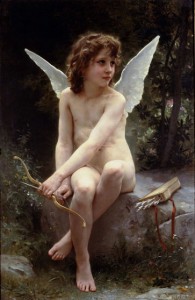In the life of the spirit, we are always at the beginning.
I read this quote many years ago and have forgotten where or who said it; but it has stayed with me and often comes to mind. Probably it pops up when I’m feeling discouraged or tired; or I see the sadness and brokenness of someone; or the news of the world is just too overwhelming. Of course as I get older, I—like many others–start to count how many years I’ve lived and how many I may have left. It seems that ‘too many’ things have happened and left their mark on mind and body. But then I get a good night’s sleep; meet someone who is kind; offer aid to someone in need and feel that I am making a difference; find a new friend; start an exciting project; visit a different city–and things look up again. Or perhaps none of the those things happen; but as I reach inside of myself to some deep place, looking for an answer, looking for peace, I am blessed with a new way of seeing things–almost through an act of grace.
A few months ago, as I wrote in my last blog entry, I attended a workshop given by Thomas Moore at the New York Open Center. He spoke about Eros, ancient Greek god of love, desire, and procreation.
In classical sculpture Eros was portrayed as a young man, perhaps 19 or 20 years old with large wings. Later, he became a winged child or infant, usually drawing a bow, often seen with Aphrodite, goddess of love. He is the force within us that calls to us, that embodies all that we desire. Thomas Moore said, and we’ve probably all had this experience, that Eros can blow into your life when you least expect it. He makes us feel alive, awakens all that perhaps we wish could stay asleep. Still, he lives on. He is our own eternal sense of youth. He is a creative power, keeping us connected, keeping us going. I like to think of him as the eternal essence of becoming.
The picture by Bouguereau above is not the classical Eros. But it captivates me. I’m not sure if it is a girl or a boy, but she is beautiful and physically at the edge between childhood and adulthood. For me, she embodies the thought that, in the life of the spirit, we are always at the beginning.
In 1959, two years before his death, Carl Jung gave an interview to John Freeman for the BBC program “Face to Face.” Freeman asked Jung about death, an event Jung had said was as important psychologically as birth, and about it’s being an end. Jung replied that although death is an end, we are not certain about what it is. He went on to speak of the ‘peculiar faculties of the psyche that are not entirely confined to space and time.’ And he spoke of how we can have dreams and visions of the future, can look around the corner. Jung said:
“I have treated many old people. It’s interesting to watch what the unconscious is doing. It is about to be threatened with a complete end and it disregards it. Life behaves as if it were going on.”
He said it’s better to live on looking forward as if we have centuries; to live on looking forward to the great adventure that is ahead, rather than to look back and become petrified. Yes, we’re going to die, he said, but there is something in us that doesn’t believe it. Think along the lines of nature, he said.
Of course in both Western and Eastern philosophy, there is the concept of the continuation of consciousness, and of reincarnation. Plato spoke of it, as did many others including Renaissance philosopher Giordano Bruno:
During life, the soul does leave its own body, but it cannot leave the universal body, nor can it be abandoned by the universal body…for when it leaves one simple or complex body…it goes and enters another.
The Hindu God Lord Krishna says: Never was there a time when I did not exist, nor you, nor all these kings; nor in the future shall any of us cease to be.
And:
As a person puts on new garments, giving up old ones, the soul similarly accepts new material bodies, giving up the old and useless ones.
Buddhism uses the term rebirth, but the idea of the continuation of consciousness in some form is still present. His Holiness the Dalai Lama says:
Buddhists are concerned not only for this life but for life after life, on and on. We count not weeks or months or even years, but lives and eons.
Of course there’s a flip side to all of this. Some of us want things to end. Sometimes we like to take something to ease the pain, forget everything, go to sleep, lose consciousness. Some find the problems of life so overwhelming they even commit suicide.
In the movie “Groundhog Day,” dubbed “the most spiritual film of our time,” the actor Bill Murray, a disgruntled news reporter, keeps trying to kill himself. But no matter what he does, nothing works. He keeps waking up to the same day, with the same old troubles, over and over. Slowly, as he starts to do the inner and outer work necessary to help both himself and others, things begin to change. One day he wakes up to find that it’s finally “the next day,” and that happiness and love have made their way into his life.

